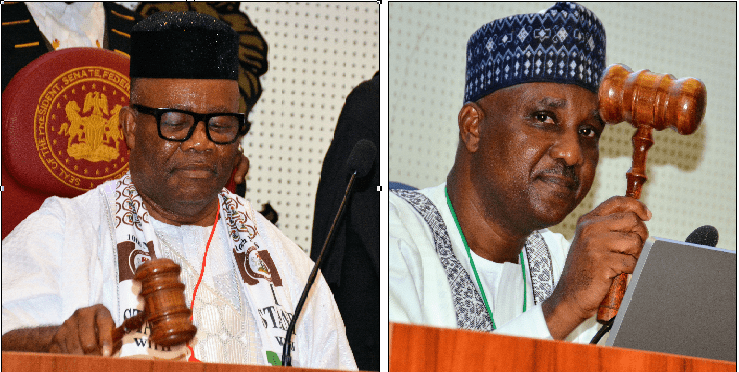President Tinubu’s Conferment of Honours Sparks Debate on National Assembly Hierarchy
Introduction:
President Bola Tinubu’s conferment of national honours on notable Nigerians, including the Speaker of the House of Representatives and the Senate President, has sparked a debate on the hierarchy of Nigeria’s bicameral legislature. The controversy has highlighted the differences between the House and the Senate, as well as the need for constitutional and administrative clarity in the country’s governance structure.
Main Points:
1. The conferment of national honours on the Speaker of the House of Representatives and the Senate President has raised questions about the hierarchy of the two chambers.
2. The Senate President is considered the “Chairman of the National Assembly” and is higher in rank than the Speaker of the House of Representatives.
3. The conferment of higher honours on the Senate President and his deputy has been criticized by members of the House of Representatives, who argue that the Speaker is lower in rank and should have been bestowed with a higher honour.
4. Political analysts are divided on the issue, with some arguing that the Senate President and his deputy are higher in rank and should be conferred with higher honours, while others argue that the Speaker and his deputy should be conferred with higher honours to reflect their roles as leaders of the two chambers.
5. Experts have also weighed in on the issue, with some arguing that the bicameral legislature is a relic of colonialism and should be scrapped, while others argue that it is necessary to preserve the internal sovereignty of the country’s various ethnic groups.
Conclusion:
The conferment of national honours on notable Nigerians has sparked a debate on the hierarchy of Nigeria’s bicameral legislature. While some argue that the Senate President and his deputy are higher in rank and should be conferred with higher honours, others argue that the Speaker and his deputy should be conferred with higher honours to reflect their roles as leaders of the two chambers. The controversy highlights the need for constitutional and administrative clarity in the country’s governance structure.
